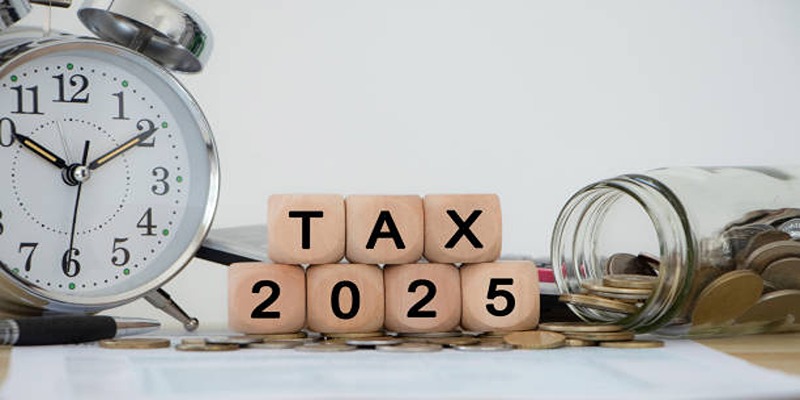Many people in the United States find that the tax system creates more confusion and stress than it should. The Fair Tax Act is a matter under consideration, calling for federal income taxes to be ended in favor of a national sales tax for simpler taxing. Still, it is important to think about how this changes will touch you, economic life and the nation. The guide covers why the act exists, its usefulness, what others claim about it and how it could change life for most of us.
What is the Fair Tax Act?

The Fair Tax Act is a legislative proposal designed to replace the federal income tax, payroll tax, corporate income tax, and other federal taxes with a single national sales tax. Under this system, all goods and services purchased in the U.S. would be subject to a flat sales tax rate, estimated to be 23%. This would eliminate the need for the Internal Revenue Service (IRS) and massively simplify the process of tax collection and compliance.
Key Features of the Fair Tax Act:
- Replace federal taxes (income, payroll, corporate, capital gains) with a consumption-based tax.
- Simplify taxation by collecting taxes at the point of purchase instead of during income filing.
- Provide a “prebate” to every family to offset taxes on essential goods and services up to the poverty line.
- Abolish the IRS, as tax collection would occur at the state level.
The overarching goal of the Fair Tax Act is to make taxation more transparent, eliminate loopholes, and move toward a consumption-based system.
How Would the National Sales Tax Work?
The proposed national sales tax is straightforward in concept but far-reaching in execution. Here’s how it’s designed to work:
Flat Rate of 23%
Consumers pay a 23% sales tax on all new goods and services at the point of purchase. This is a tax-inclusive rate, meaning for a $100 purchase, $23 would go toward taxes, and $77 would cover the item’s cost.
Prebate Mechanism
One major concern with sales taxes is their regressive nature, as lower-income families spend a greater proportion of their earnings on essentials. To address this, the Fair Tax Act includes a monthly prebate (short for “pre-tax rebate”) provided to all legal residents. The prebate would ensure families effectively don’t pay tax on purchases up to the poverty line.
For example, if the poverty line for a family of four is $36,000 annually, they would receive a monthly prebate to cover 23% of their essential spending threshold (around $8,280 annually).
Focus on New Goods
The tax applies only to new goods and services. Purchases of used goods, such as secondhand cars or thrift store clothing, would be exempt to avoid double taxation.
State-Level Collection
Rather than a centralized system managed by the IRS, taxes would be collected at the state level and remitted to the federal government.
Potential Benefits of a National Sales Tax
Proponents of the Fair Tax Act envision several advantages to adopting a national sales tax system:
Simplicity
Filing taxes under the current system can be daunting. According to the IRS, taxpayers and businesses spend billions of hours annually on compliance. A national sales tax eliminates the need for annual filings, tax brackets, W-2 forms, and complex deductions.
Transparency
Under the Fair Tax Act, every consumer visibly sees the taxes they pay on purchases. This creates a more transparent system where taxpayers understand their contribution, unlike the current method of withholding taxes from paychecks.
Incentivize Saving and Investment
Unlike income taxes, which discourage earning more by levying higher percentages for increased income, a sales tax system incentivizes savings. Families and individuals who save rather than consume are not taxed on their savings or investments.
Elimination of Loopholes
The current tax code is filled with deductions and loopholes that typically benefit the wealthy or large corporations. Replacing the system with a consumption tax eliminates opportunities for tax avoidance or complex sheltering strategies.
Major Criticisms of the Fair Tax Act

While the Fair Tax Act seems appealing in theory, it has faced significant criticism from policymakers and economists. Here are the primary concerns:
Regressiveness
Sales taxes are inherently regressive since lower-income individuals tend to spend a higher percentage of their income on goods and services. Even with the proposed prebate system, critics worry that low-income households could still face disproportionate tax burdens relative to their wealthier counterparts.
Volatility
Sales tax revenue is closely tied to consumer spending, which fluctuates with the economy. During economic downturns, consumer spending typically decreases, leading to a potential shortfall in federal revenue.
Impact on Social Programs
Shifting to a consumption-based taxation system eliminates direct payroll tax contributions, which currently fund Social Security and Medicare. Critics argue that relying on sales tax revenue could create uncertainty for these critical programs.
Administrative Challenges
While proponents highlight the simplicity of a sales tax, implementing and enforcing such a system nationwide would require significant administrative effort at both state and federal levels. Critics also question whether eliminating the IRS entirely is realistic.
High Rate
Setting the sales tax rate at 23% is a tall order. Some economists estimate that the rate may need to be even higher to sustain current levels of federal spending. Such a high tax could lead to consumer pushback and potential black markets for untaxed goods.
What Would This Mean For You?
If the Fair Tax Act were implemented, the way you manage your money and make purchases would shift significantly. Here’s how it could affect everyday Americans:
- Household Budgets: You’d need to account for the additional 23% tax on purchases when budgeting your household expenses. While the prebate would offset some costs, careful planning would be essential to cover both essentials and discretionary spending.
- Job Income: With no federal income tax, employees would receive their full paycheck without deductions for Social Security, Medicare, or federal income taxes. This might give many Americans the feeling of “earning more,” although their purchasing power may decrease due to consumption taxes.
- Savings and Investments: Consumers who prioritize saving and investing over spending would benefit from not being taxed on their income. This could encourage individuals to build long-term financial stability.
- Business Operations: Business owners would see changes in how they handle transactions and tax compliance. Companies producing or selling new goods and services would need to incorporate the national sales tax into their pricing structures.
The Future of the Fair Tax Act
While the Fair Tax Act has been debated for years, it has yet to be implemented. Critics and supporters continue to discuss its merits, but meaningful policy change would require Congressional approval, public support, and detailed implementation plans.
For now, the Fair Tax Act remains a concept that could redefine how taxes work in the U.S.—bringing both opportunities and challenges.
Conclusion
The Fair Tax Act represents a bold reimagining of America’s tax system. It promises simplicity, transparency, and the elimination of loopholes. However, its regressive nature and potential economic volatility raise important questions about its feasibility. If you're curious about your own taxes and financial planning in the event of such a shift, it might be worth considering how consumption-based taxation could affect your wallet.












